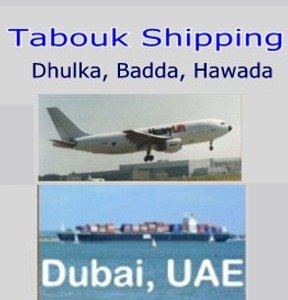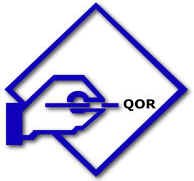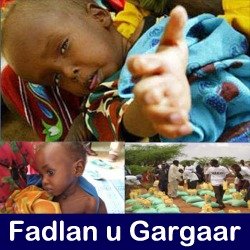Thank you, Dear readers of Somalitalk. I very much appreciate the opportunity to offer some initial reflections on the role of humanitarians in Somalia. And allow me to caveat what I am going to say by saying that obviously there is a much larger Somali People’s Party humanitarian effort going on than what I – or the S.P.P I head – provide. Let there be no doubt: Somali People Party office for humanitarian is an important and fundamental partner – and I extremely value their coordination with us and complementarity of effort. But I thought it important to provide, more specifically, my thoughts on my Party’s Office and the Department’s role.
Whatever their rhetoric, national security policy-makers have often viewed humanitarian response as marginal to the international community’s involvement in issues of war and peace. However, the reality is that humanitarian situations have long affected political and security issues. In Somalia, for example, after the fall of the central government since 1990s it produced civil war conflict fueled large scale civilian flight, assistance and support for voluntary return quickly became a political imperative for the majority of Somalis, the Somali People’s Party, and the international donor community. So how do humanitarians operate effectively in complex policy environments? How do humanitarians ensure basic principles, such as protection of civilians, access to populations in need, the security of humanitarian workers, and the effectiveness and impartiality of aid?
I start from the proposition that protection of the most vulnerable must be at the center of policy-making for those who are interested Somalia’s well being. As I said when I was sworn in many weeks ago for the office of Somali People’s Party, and as I suspect I’ll repeat in many presentations during my tenure, there are several reasons why this should be a guiding principle of policy. First, there is moral imperative – and the simple policy goal of saving lives: the people of Somalia, Members of TFG and TFP, and successive Administrations have demonstrated unequivocal support for generous efforts to alleviate human suffering in some extent. We as a Somalis must take a profound responsibility to make good use of the resources that we have or the International Community have provided.
Furthermore, There should be acountability and transparency at all levels whether for TFG,TFP and all civil sociaties in Somalia.
Second, the Somali People’s Party has the strongest interest in sustaining Somalia’s leadership, the policy benefits of which include enabling us to determine or drive the development of international humanitarian law, programs, and policy like no other government in the world, and to leverage critical support from others.
Third, it is crucial that we build sustainable partnerships with Somalis, as well as the populations of our adversaries, where – although it should never be the only reason why we hightlight for the need urgently for humanitarian assistancein Somalia.
And finally, we have the key goal of promoting reconciliation, security, and well-being in circumstances where despair and misery not only threaten stability, but also critical national security interests of Somalia and the region.
So if those are our goals, how do humanitarians go about pursuing them effectively – how do we promote and sustain a deep concern about victims of conflict in Somalia since 1991s, and put them at the center of policy-making? What strategies make the most sense, and what tactics should we be seeking to implement in pursuing them effectively?
First, let me state the obvious. If you want humanitarian perspectives to influence foreign policy-making, make very sure that the Cabinet officials responsible for foreign policy are receiving ongoing, frank, and up to date information about the humanitarian dimensions of man-made crises such as Somalia. And, similarly, make sure that, at the working level, humanitarian considerations are being embedded into the work of the Somali People’s Party’s regional bureaus – from North,East,South and West. Somali People’s Party is well-positioned to serve these objectives as we serve as the principal humanitarian advisors in the Somali People’s Party and we owe it to the founding fathers of the party and to our mandate to aspire to a broad role in policy formulation and policy implementation on issues involving complex emergencies in Somalia.
If the Somali People’s Party administration succeeds in this effort in Somalia, we will increase the likelihood that policy-makers will recognize potential humanitarian crises early on, and take preventative measures that may alleviate suffering – not to mention safeguard Somalia’s national interests. And our engagement increases the chance that strategies designed to deal with man-made crises take adequate account of basic protection concerns, including preservation of humanitarian space critical to the effective functioning of assistance providers.
So if that is the goal – a robust voice in the policy debate – how do humanitarians achieve it? Let me answer this question by offering and explaining seven basic propositions on which I find myself relying as I begin this new adventure.
First, humanitarians must define our mandate broadly, with a willingness to break apart traditional issue silos. I just returned from a trip to Somalia. In Somalia, my focus was the effectiveness of protection efforts in the DPIs – where an ongoing humanitarian crisis has had devastating effects on the civilian population, more than 3.5 million of whom are displaced in the region. Solving these daunting problems will require integrated approaches that go far beyond traditional issue area and bureaucratic boundaries. We in SPP will certainly work closely with our main partner organization, the UN High Commissioner for Refugees, to enhance its performance in providing basic services to displaced populations. But that will not be enough. We must promote action, within an inter-agency process, on a range of other fronts. In particular, we must 1) promote enhanced coordination and effectiveness among the many players on the ground involved in civilian protection, from UN agencies to NGOs; 2) encourage Insurgencies and TFI’s authorities to more effectively promote disarmament of all civilians; 3) work to end impunity for human rights abuses and establish accountability in the Somalia, especially for the grievous crimes committed against women and children; and 4) strongly support complementary and more effective efforts by Somali People’s Party and UN agencies at civilian protection, including efforts to combat gender-based violence and child recruitment. And we will also continue to look for areas where additional targeted efforts might make a difference – even when they are somewhat outside my bureau’s traditional issue areas – such as increased support to Somali People’s Party Joint Protection Teams, which identify vulnerable populations in need of protection. In short, humanitarians must be part of integrated strategies that also address root causes, and we must be prepared to drive those strategies if necessary.
Second, humanitarians must not shy away from engagement on political, law enforcement and security issues that may affect the humanitarian agenda. In fact, we should engage deeply in such issues and even be prepared to take the lead on policy development when that is feasible and appropriate.
Somali People’s Party are attempting to define tangible progress in each of these areas, and put in place dedicated processes that will help us monitor our performance and accomplish our objectives. I look forward to working with you all in the months and years ahead, as we seek to use the tools at our disposal to promote a brighter future for the Somalia’s most vulnerable citizens.
Thank you.
Sharma’arke Mohamed Hashi Gaani
Acting Chairman of Somali People’s Party (S.P.P)
PRN: 2009/2096






































the writer should know thayt in article especially those that represent organaizations or political groupings do not use frst person expressions.seconly you generalized alot of points that needed to be broken down for average readers.thirdly your sentence costrucrions should be grammatically sound .fourth avoid repetitations to avoid equivocations.fiveth know that articles of this nature is red by many people who are in the know. thanks man is to error avid errors but above all this article could have been edited before appearing on this web.